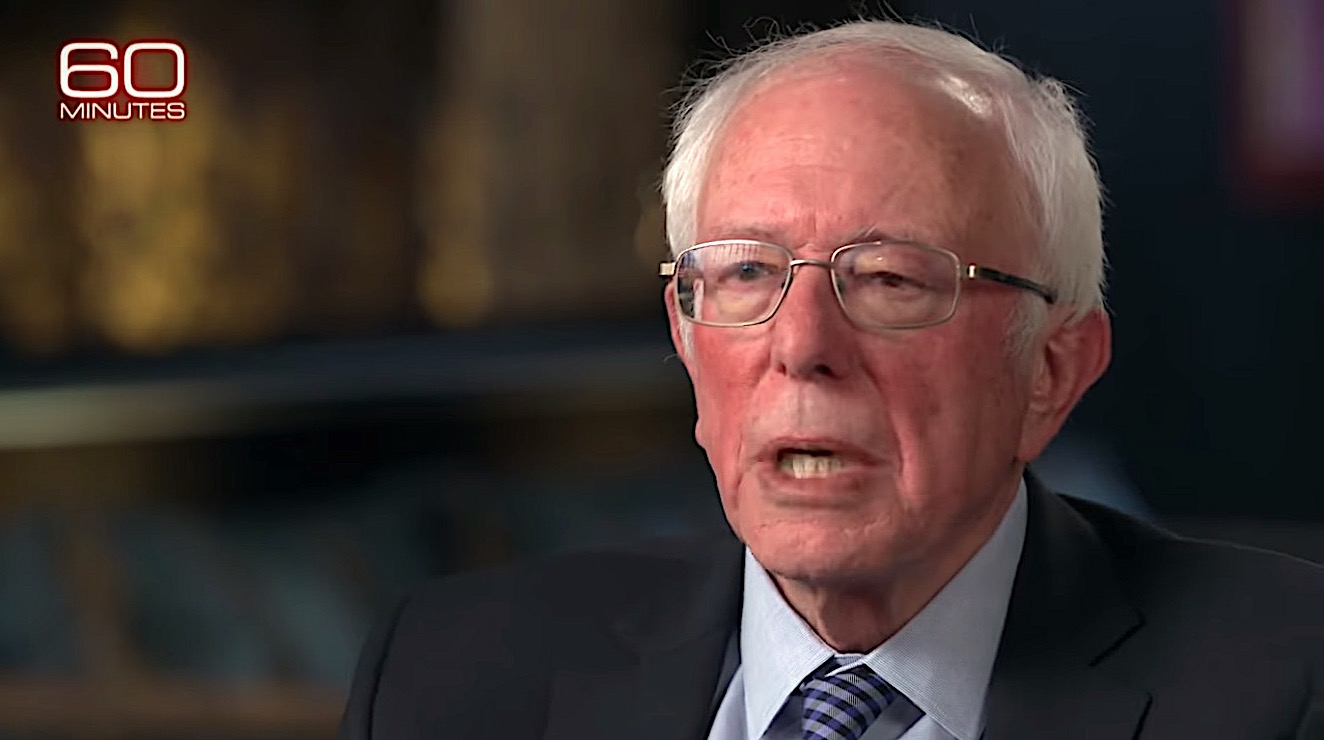Bernie Sanders says it's 'unfair' to say everything Fidel Castro did was bad, condemns his 'authoritarian nature'


A free daily email with the biggest news stories of the day – and the best features from TheWeek.com
You are now subscribed
Your newsletter sign-up was successful
Sen. Bernie Sanders (I-Vt.) sat down with CNN's Anderson Cooper for a 60 Minutes interview that aired Sunday night, and he agreed "it is a bit shocking" he's the frontrunner for the Democratic presidential nomination. When Cooper asked if Democratic voters are "really wanting a revolution," Sanders suggested they "go easy on the word rev— 'political revolution.'" Cooper noted that's the word Sanders uses, and Sanders said he doesn't want "people, you know, to overstate that." His Medicare-for-all plan, he said, is "not socialized medicine. This is keeping the same system intact, but getting rid of the private insurance companies."
Cooper played clips of Sanders saying positive things about the late Cuban leader Fidel Castro in the 1980s. "We're very opposed to the authoritarian nature of Cuba but you know, it's unfair to simply say everything is bad," Sanders told Cooper. "When Fidel Castro came into office, you know what he did? He had a massive literacy program. Is that a bad thing? Even though Fidel Castro did it?" Cooper noted that Castro also jailed dissidents and worse, and Sanders said "we condemn that. Unlike Donald Trump" with North Korea's despotic ruler. "I do not think that Kim Jong Un is a good friend," he said. "I don't trade love letters with a murdering dictator. Vladimir Putin, not a great friend of mine."
Sanders wasn't very specific on how he planned to pay for Medicare-for-all and his other big initiatives, and he didn't explain how he would get his plans through Congress. But he did acknowledge that his policy proposals were influenced "a lot" by his family or origin and childhood in Brooklyn. Still, " I don't like to, you know, talk about personal stuff that much," he said. Cooper asked if his "personal stuff" wasn't important to who he is, and Sanders said it may be but he's "kind of private" and "not particularly anxious to tell the world about everything personal in my life."
The Week
Escape your echo chamber. Get the facts behind the news, plus analysis from multiple perspectives.

Sign up for The Week's Free Newsletters
From our morning news briefing to a weekly Good News Newsletter, get the best of The Week delivered directly to your inbox.
From our morning news briefing to a weekly Good News Newsletter, get the best of The Week delivered directly to your inbox.

Read the transcript and watch the full interview at 60 Minutes.
A free daily email with the biggest news stories of the day – and the best features from TheWeek.com
Peter has worked as a news and culture writer and editor at The Week since the site's launch in 2008. He covers politics, world affairs, religion and cultural currents. His journalism career began as a copy editor at a financial newswire and has included editorial positions at The New York Times Magazine, Facts on File, and Oregon State University.
-
 The ‘ravenous’ demand for Cornish minerals
The ‘ravenous’ demand for Cornish mineralsUnder the Radar Growing need for critical minerals to power tech has intensified ‘appetite’ for lithium, which could be a ‘huge boon’ for local economy
-
 Why are election experts taking Trump’s midterm threats seriously?
Why are election experts taking Trump’s midterm threats seriously?IN THE SPOTLIGHT As the president muses about polling place deployments and a centralized electoral system aimed at one-party control, lawmakers are taking this administration at its word
-
 ‘Restaurateurs have become millionaires’
‘Restaurateurs have become millionaires’Instant Opinion Opinion, comment and editorials of the day
-
 NIH director Bhattacharya tapped as acting CDC head
NIH director Bhattacharya tapped as acting CDC headSpeed Read Jay Bhattacharya, a critic of the CDC’s Covid-19 response, will now lead the Centers for Disease Control and Prevention
-
 Witkoff and Kushner tackle Ukraine, Iran in Geneva
Witkoff and Kushner tackle Ukraine, Iran in GenevaSpeed Read Steve Witkoff and Jared Kushner held negotiations aimed at securing a nuclear deal with Iran and an end to Russia’s war in Ukraine
-
 Pentagon spokesperson forced out as DHS’s resigns
Pentagon spokesperson forced out as DHS’s resignsSpeed Read Senior military adviser Col. David Butler was fired by Pete Hegseth and Homeland Security spokesperson Tricia McLaughlin is resigning
-
 Judge orders Washington slavery exhibit restored
Judge orders Washington slavery exhibit restoredSpeed Read The Trump administration took down displays about slavery at the President’s House Site in Philadelphia
-
 Hyatt chair joins growing list of Epstein files losers
Hyatt chair joins growing list of Epstein files losersSpeed Read Thomas Pritzker stepped down as executive chair of the Hyatt Hotels Corporation over his ties with Jeffrey Epstein and Ghislaine Maxwell
-
 Judge blocks Hegseth from punishing Kelly over video
Judge blocks Hegseth from punishing Kelly over videoSpeed Read Defense Secretary Pete Hegseth pushed for the senator to be demoted over a video in which he reminds military officials they should refuse illegal orders
-
 Trump’s EPA kills legal basis for federal climate policy
Trump’s EPA kills legal basis for federal climate policySpeed Read The government’s authority to regulate several planet-warming pollutants has been repealed
-
 House votes to end Trump’s Canada tariffs
House votes to end Trump’s Canada tariffsSpeed Read Six Republicans joined with Democrats to repeal the president’s tariffs
